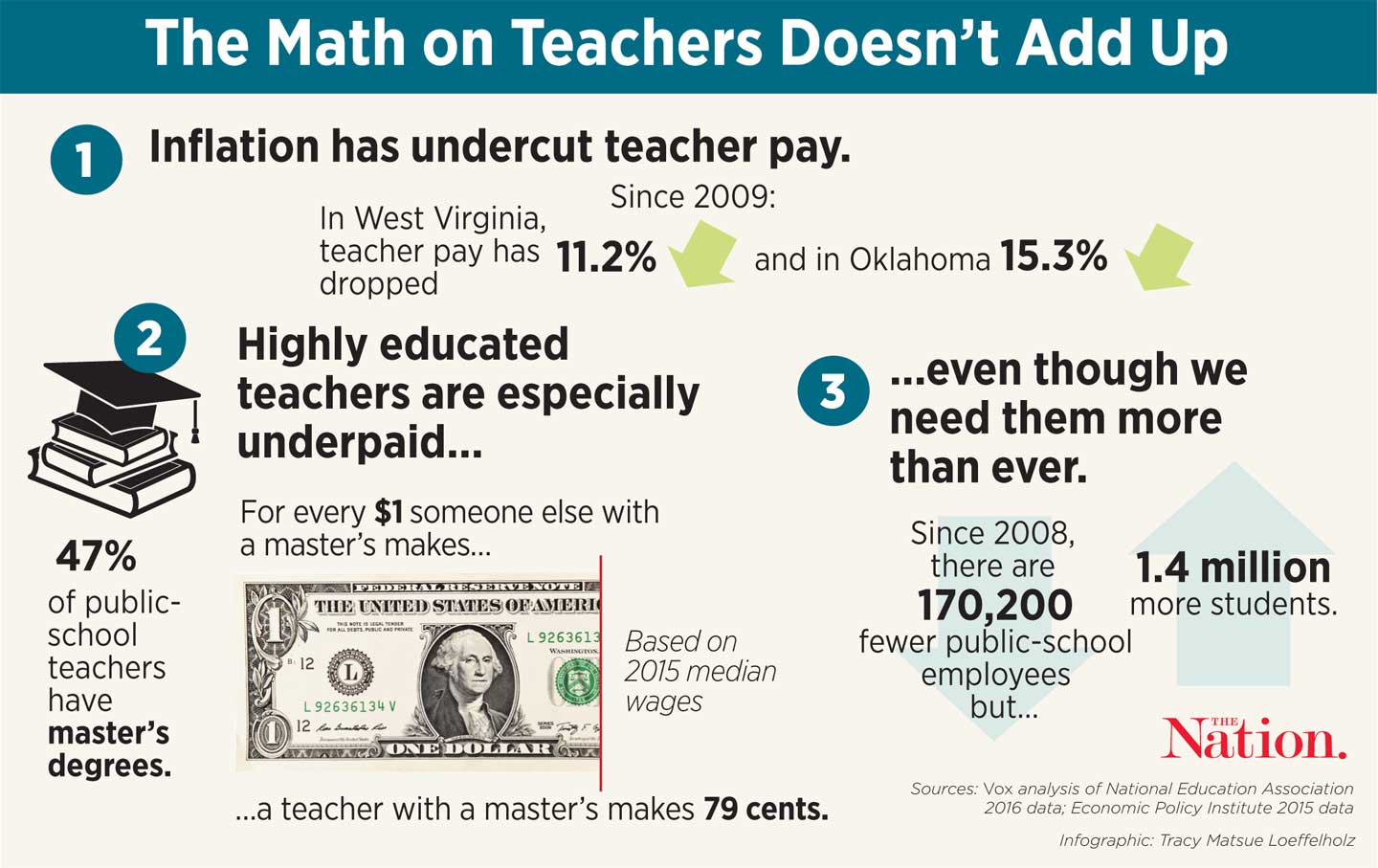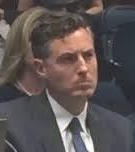Governments should step up their efforts to give people skills to seize opportunities in a digital world - OECD
Governments should step up their efforts to give people skills to seize opportunities in a digital world
09/05/2019 - Governments must urgently step up their efforts to improve their education and training policies to help more people reap the benefits of the digital transformation and to reduce the risk of automation widening inequalities and driving unemployment, according to a new OECD report.
The OECD Skills Outlook 2019, which is part of the Organisation’s “I am the Future of Work” campaign, shows that as job markets evolve in response to technological change, some countries are better prepared than others as a result of the skill levels of their populations.
A new scoreboard in the Outlook finds that only a few countries, including Belgium, Denmark, Finland, the Netherlands, Norway and Sweden, are ahead in terms of the skills and effective lifelong learning systems needed to thrive in the digital world.
However, many other countries are lagging behind. Japan and Korea, for example, have the potential to perform well but must make greater efforts to ensure older workers and adults are not left behind. People in Chile, Greece, Italy, Lithuania, the Slovak Republic and Turkey often lack the skills needed to flourish in the digital world and current training systems are not developed enough to enable them to upskill.
“In our rapidly digitalising world, skills make the difference between staying ahead of the wave and falling behind,” said OECD Secretary-General Angel Gurría, launching the report in Paris. “To help people, governments will need to find the right balance between policies fostering flexibility, labour mobility and job stability. Businesses have also a key role to play in ensuring that employees upskill and reskill, adapting to the changing demands of the labour market. By improving our skills systems, we can ensure that today’s technological revolution will improve lives for all.” Read the full speech.
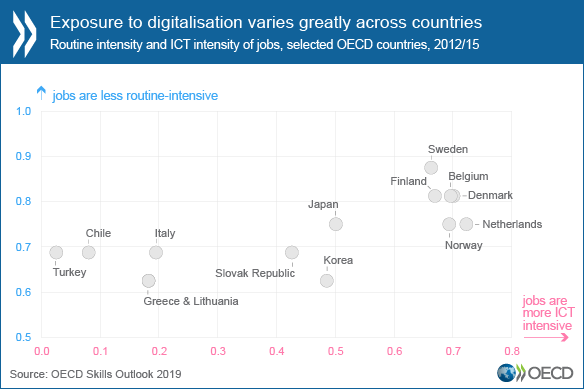 Traditional education systems need to evolve into lifelong learning systems, says the OECD. Adults will need to reskill and upskill throughout their careers to keep up with changes in the labour market. Yet, participation in training by low-skilled adults – those most likely to be affected by the changes ahead – is 40 percentage points below that of high-skilled adults on average across the OECD. Countries should create flexible and shorter types of learning opportunities, and technology can help through the development of online resources.
Traditional education systems need to evolve into lifelong learning systems, says the OECD. Adults will need to reskill and upskill throughout their careers to keep up with changes in the labour market. Yet, participation in training by low-skilled adults – those most likely to be affected by the changes ahead – is 40 percentage points below that of high-skilled adults on average across the OECD. Countries should create flexible and shorter types of learning opportunities, and technology can help through the development of online resources.
The Outlook says it is also key to improve the labour market relevance of adult learning and design new ways to recognise the level of skills of people who will follow complex learning pathways. It is vital to overcome the lack of motivation, which seems to prevent many low-skilled adults from engaging in training opportunities.
The Outlook estimates the level of training required for workers to change occupation and calculates how much training effort is required to facilitate these transitions. The findings show that more than half of occupations (54%) at high risk of automation will need either a moderate (less than one year) or severe (more than one year) training effort for workers to transition to better-quality and safer jobs.
The magnitude of the challenge is substantial since lifelong learning systems need to provide training for adults throughout their careers, so that they can move to other jobs as automation progresses or avoid being displaced from jobs that will be profoundly transformed. Governments need to put the right incentives and mechanisms in place to engage employers, social partners and other stakeholders to share the costs.
Countries can foster lifelong learning by addressing inequalities in learning opportunities throughout life, adapting the school curriculum to changing skills requirements and providing more effective training to teachers. Technology can play a large role in making education and training systems more efficient, flexible and adaptable to individual needs. To achieve this goal, it is important that teachers receive the support they need to use technology in order to improve student outcomes.
Technology can also help lagging regions catch up, by connecting people with teachers and learning opportunities that may not be available locally.
Working with over 100 countries, the OECD is a global policy forum that promotes policies to improve the economic and social well-being of people around the world.
Governments should step up their efforts to give people skills to seize opportunities in a digital world - OECD
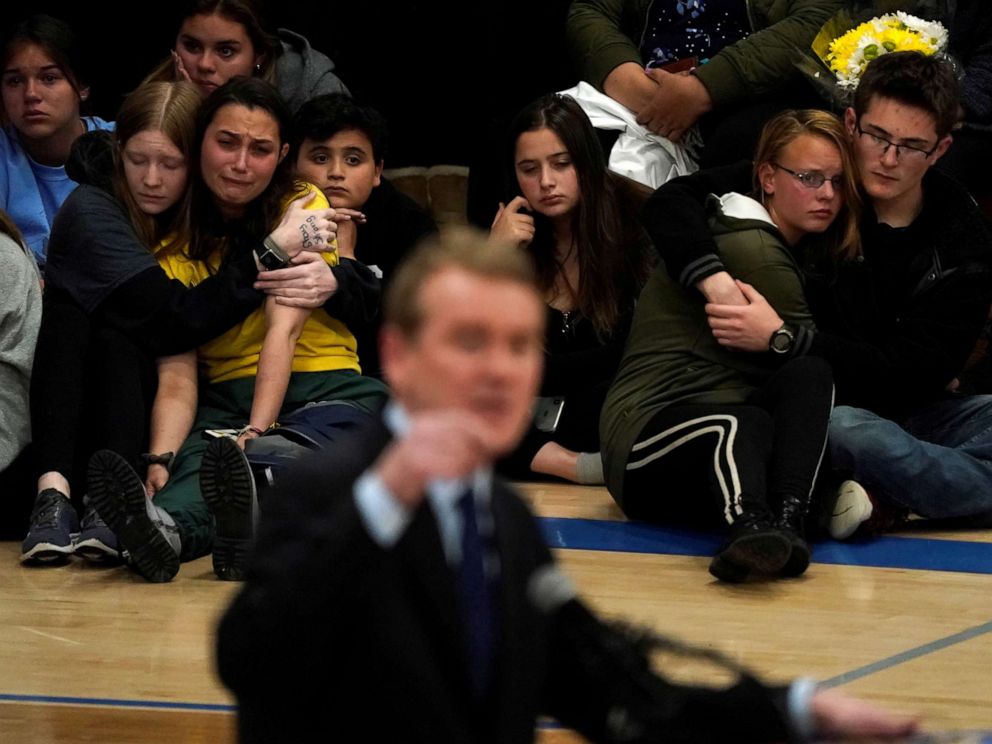 Rick Wilking/Reuters
Rick Wilking/Reuters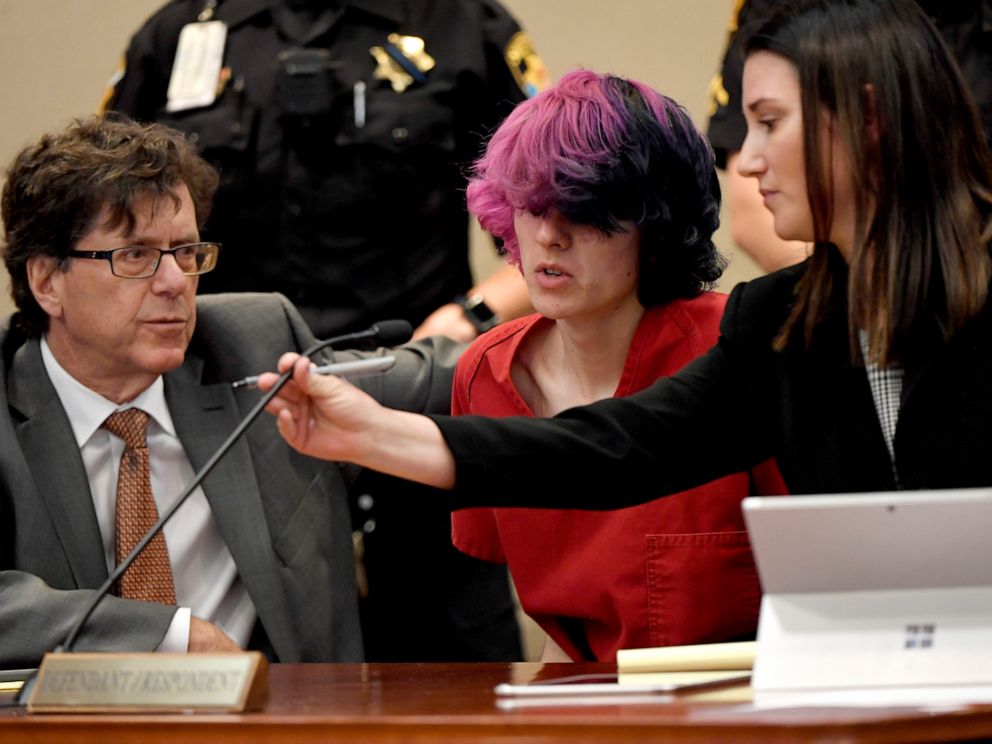 Joe Amon/Denver Post via AP
Joe Amon/Denver Post via AP













